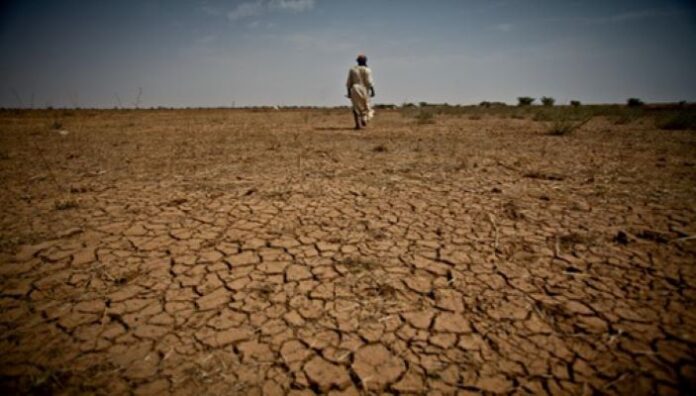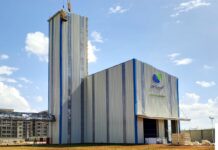The Government of the Republic of The Gambia recently received an insurance payout of USD 187 641 following its participation in the African Risk Capacity (ARC) Group mechanism, designed to help African Union (AU) member states plan, prepare and to better respond to extreme weather events. The funds come at a time when the country is facing severe food insecurity and will support recovery efforts from the recent drought event and help the government reach the most affected populations.
The payout, made by ARC Limited (ARC Ltd.), the insurance affiliate of the ARC Group responsible for risk pooling and transfer, is the result of a failed 2022/2023 agricultural season. The payment was made to the government in fulfilment of the conditions of the drought sovereign insurance policy taken out by The Gambia to cover this risk. Insurance taken out with ARC Ltd avails predictable finance to facilitate response to a disaster event of an agreed attachment point by a participating country.
The Gambia’s participation in this ARC risk pool was made possible by an insurance premium paid in part by the government, with premium support contribution from the Africa Disaster Risk Financing Programme, a framework developed as a collaboration between the African Development Bank and the ARC Group, funded by the Agence Française de Développement (ADRiFi AFD).
As drought conditions spread across West Africa’s Sahel region, The Gambia was amongst the most affected during the 2022/23 agricultural season. This led to late planting in the districts of Badibou, Jarra West, Kiang North Bank West, and Upper River North. According to the AfricaRisk View, ARC’s technical software for early warning and monitoring, a total of 153,902 people were affected, triggering a payout of USD 187,641.
“We are thrilled to be making this payout to the Government of the Republic of the Gambia and look forward to seeing the difference it will make in the lives of affected communities. ARC has been working closely with the country’s Disaster Risk Management structures to strengthen its response capacities to drought, and this payout is the culmination of these efforts,” said Lesley Ndlovu, CEO of ARC Ltd. “The payout will go a long way towards facilitating timely response on the ground, especially given the existing contingency plans to guide the implementation response.”
Through the Replica programme, a strategy which allows humanitarian actors to take out a policy on behalf of a country, Replica partner, the World Food Programme, which took out a policy on behalf of The Gambia, also received a payout of the same amount. This payout will also be used to implement recovery activities in the country and complement other efforts.
The Final Implementation Plan, developed from ARC’s contingency planning process, will guide the use of the payout, and assist 17,058 people in the affected regions. The Republic of Gambia has chosen the use of a cash transfer to be managed through the National Disaster Authority (NDMA) to reach the most vulnerable. WFP will use the disbursement received in the same manner. In addition to abating increased food insecurity, the payout will also help prevent households from resorting to negative coping mechanisms such as selling off productive assets.
Commenting on the payout, UN Assistant Secretary-General and ARC Group Director General, Ibrahima Cheikh Diong, reiterated the value of the ARC intervention, “The impact of disaster events goes beyond the immediate socio-economic costs and can reverse development gains that Africa has made. In the absence of instruments such as ARC, disaster events worsen food insecurity and can easily trap vulnerable populations into perpetual cycles of poverty.” He continued, “The effort from the Republic of The Gambia to build the country’s resilience is commendable. The government has continually demonstrated its willingness to fight the scourge of climate change towards protecting the lives and livelihoods of its people.”
The ARC facility combines four critical elements of Disaster risk management: early warning, contingency planning, risk pooling and risk transfer to create a powerful value proposition and has proven to be an effective tool to improve a government’s preparedness to manage disaster events. Combined, this offering provides participating member states with access to immediate funds for early and planned responses to support vulnerable populations while strengthening response capacities.









[…] Credit: Source link […]
Comments are closed.